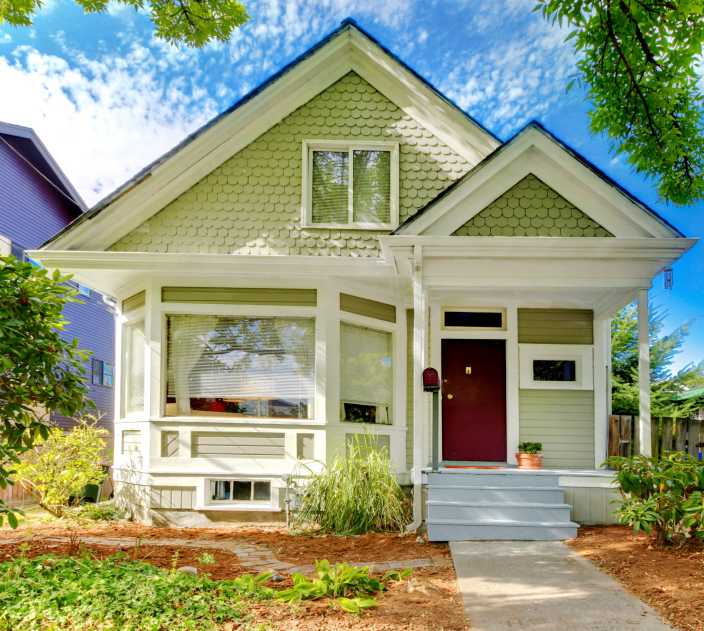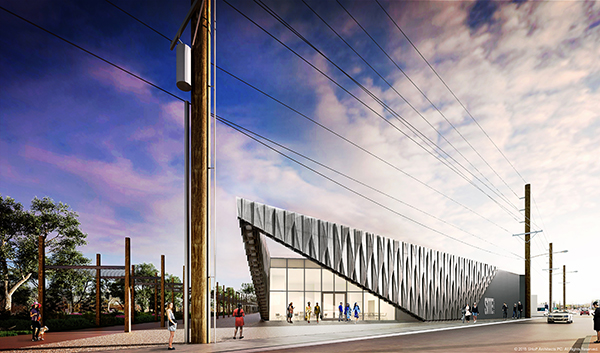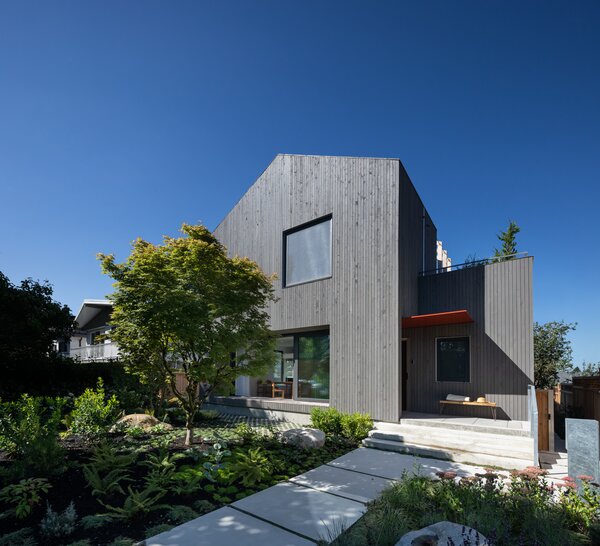
The importance of an architect in the construction industry is often overlooked. The architect's role is to design great architecture. However, most people don't realize their contribution. This is particularly true for residential projects. But, it doesn’t have to be like that.
An architect can help clients create their dream home. From initial consultation to the drawing board to the finished product, an architect's involvement can be critical to the success of your project.
You must make your client feel like you are part of the process. To achieve this, it's important to provide them with all the tools they need to take part in the planning phase. They don't need to hold an architectural degree. But a basic understanding of the fundamentals is a good start.

It can be difficult and lengthy to design a building. The end result can have significant benefits. Your architect might be able save you more than just his fee by designing a home that is efficient. A top-quality builder is crucial for successful teamwork.
For homeowners, the most important part is the relationship they have with their architect. Make sure to discuss all your ideas and dreams with your architect and not just your financial budget. There are many ways this can be accomplished. Your architect could help you create a design plan. You could also give your architect a list with ideas and let him work. In the second scenario, he might be able provide you with a list detailing the next steps. This could be a simple sketch or a more formal drawing.
There is a lot that goes into designing and drafting an architect's project. The designer must also gather information about the client, including their lifestyle, budget, and location. It is important to have a client that is open to changes and is willing to try new things.
A foolproof blueprint is not possible, but a well-planned project could be a wonderful experience. This is especially true if you are building a custom-designed home. A well-designed design will ensure that your home is a reflection of your individual lifestyle.

The most valuable contribution an architect can make to a home-design project is likely not the drawings. It's the process of sizing up the problem and then suggesting a solution. This involves a variety of technical and nontechnical decisions, and an architect's role in the process is vital. An architect can help you select a reliable builder and provide a detailed blueprint for your project. The architect's role in the homebuilding sector has changed little in the last 25 years. Many clients see architects as architects rather than partners in the design process.
FAQ
How important do you need to be preapproved for a mortgage loan?
Pre-approval is crucial for getting a mortgage. It gives you an idea how much money it will cost. It can also help you determine your eligibility for a particular loan program.
Do you prefer to hire a general contractor, or a subcontractor for your project?
The cost of hiring a general contractor can be higher than that of a subcontractor. General contractors usually have many employees. This means that they charge their clients much more for labor. A subcontractor hires only one employee so they charge less per an hour.
How long does it take for a home to be renovated?
It depends on how large the project is, and how long you spend on it each day. The average homeowner spends three to six hours each week working on the project.
How can I avoid being ripped off while renovating my home?
You can avoid being ripped off by knowing exactly what you are getting. Be sure to read the fine print before you sign any contract. Also, don't sign blank contracts. Always ask for a copy of the signed contract.
Is it worth the extra cost to build or remodel a house?
If you're thinking about building a new home, there are two options for you. Pre-built homes are another option. These homes are ready to be moved into and have already been built. Another option is to build a custom home yourself. With this option, you'll need to hire a builder to help you design and build your dream home.
Cost of building a home is determined by how much time you spend planning and designing it. A custom home may require more effort because you'll likely need to do most of the construction work yourself. You also have greater control over the materials and their placement. It may be easier to find a contractor who is skilled in building custom homes.
A new home will usually be more expensive than a renovated home. This is because you will have to pay more for the land as well as any improvements that you make to it. Additionally, permits and inspections will be required. On average, the price difference for a new or remodeled property is between $10,000 and $20,000
Statistics
- ‘The potential added value of a loft conversion, which could create an extra bedroom and ensuite, could be as much as 20 per cent and 15 per cent for a garage conversion.' (realhomes.com)
- The average fixed rate for a home-equity loan was recently 5.27%, and the average variable rate for a HELOC was 5.49%, according to Bankrate.com. (kiplinger.com)
- They'll usually lend up to 90% of your home's "as-completed" value, but no more than $424,100 in most locales or $636,150 in high-cost areas. (kiplinger.com)
- According to the National Association of the Remodeling Industry's 2019 remodeling impact report , realtors estimate that homeowners can recover 59% of the cost of a complete kitchen renovation if they sell their home. (bhg.com)
- A final payment of, say, 5% to 10% will be due when the space is livable and usable (your contract probably will say "substantial completion"). (kiplinger.com)
External Links
How To
What amount should I spend to restore my old house?
The cost of renovating a home depends on how many rooms it is, what kind of renovations, where it is located, and whether the work will be done by professionals or you. The average cost for renovations is $10,000 to $50,000 depending on how large and complex the project.
If you're planning to sell your home after the renovation, you'll likely receive less than market value if you don't take into account the costs of repairs, upgrades, and improvements. It is possible to lose money if your home looks shabby before you sell. On the other hand, if you invest enough time and energy into improving your home's appearance, you could increase the amount you get when you list it for sale.
These factors will help you choose which projects to start first.
-
Your budget. Start small if you have a tight budget. For example, you can tackle one room at a time, such as painting walls or replacing flooring. For major renovations, you can either hire a contractor who specializes on kitchen remodeling or save money.
-
Your priorities. What are your priorities? Do you want to improve your home's overall condition or fix specific issues? If you decide to address one issue only, remember that small problems can quickly become major ones. For instance, if your roof leaks every time it rains, you might end up having to replace it sooner rather than later.
-
Your timeline. Consider your timeline. For instance, if your goal is to purchase a new property next year, it might be a good idea to wait to install hardwood floors or to replace bathroom fixtures. Instead, you might wait until you move out of your existing home to make those updates.
-
Your skills. If you do not possess the skills required to accomplish a particular project, hire someone else. A cabinet maker might be available to help you if your carpentry skills do not allow you to make custom cabinets.